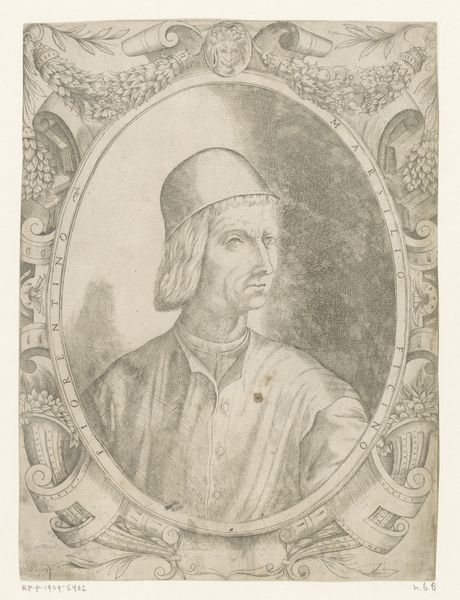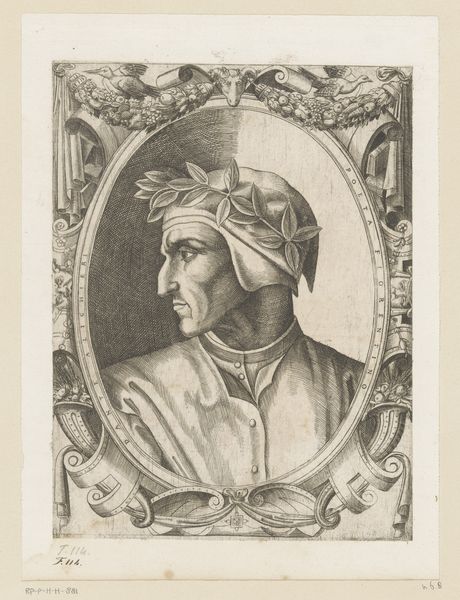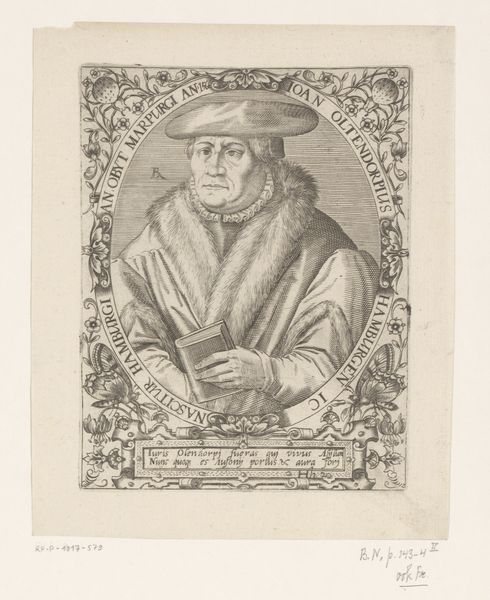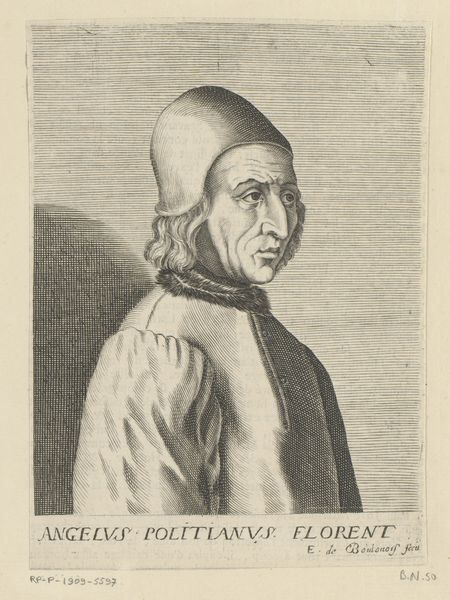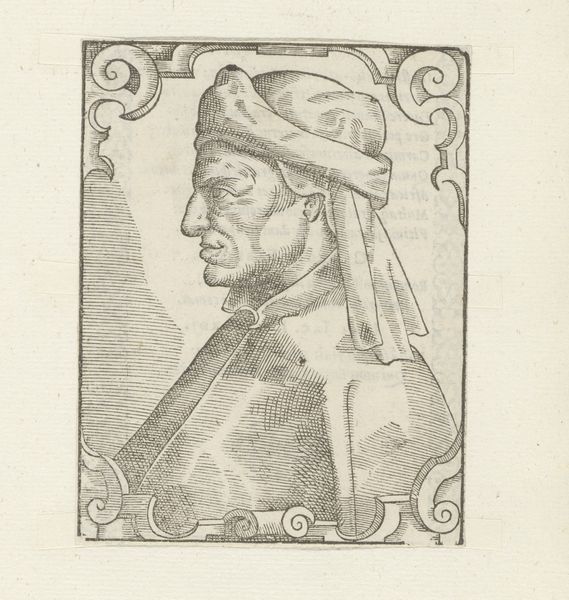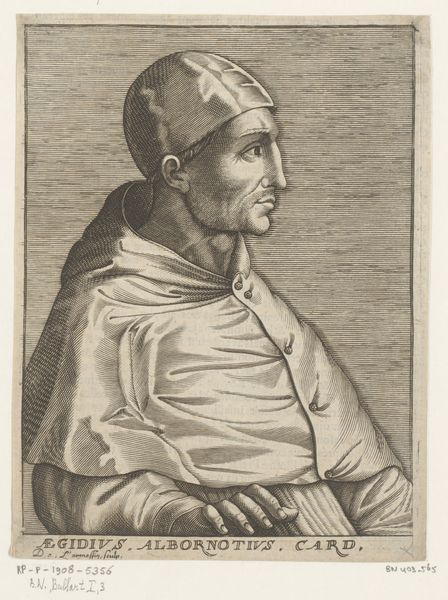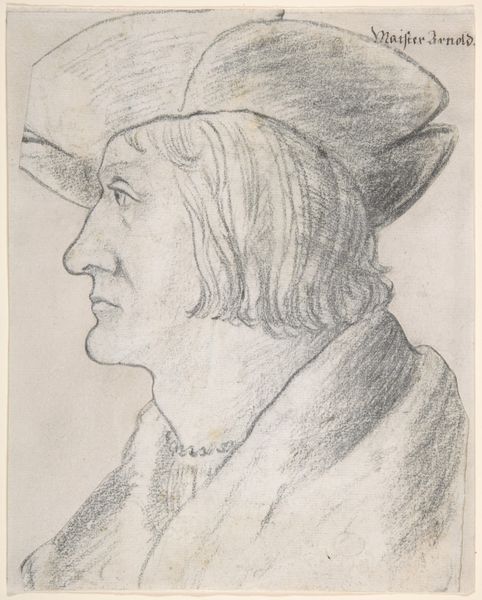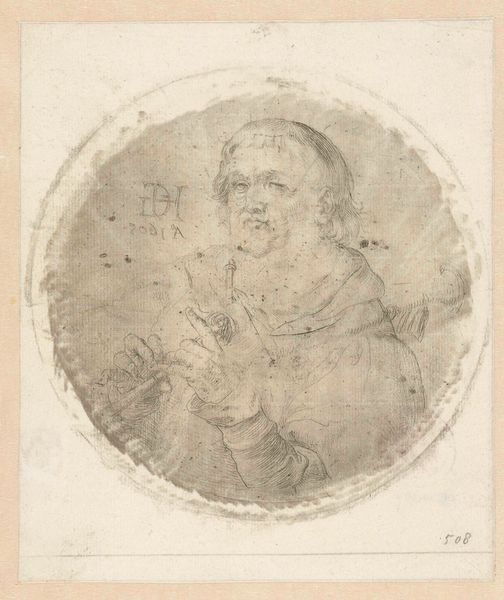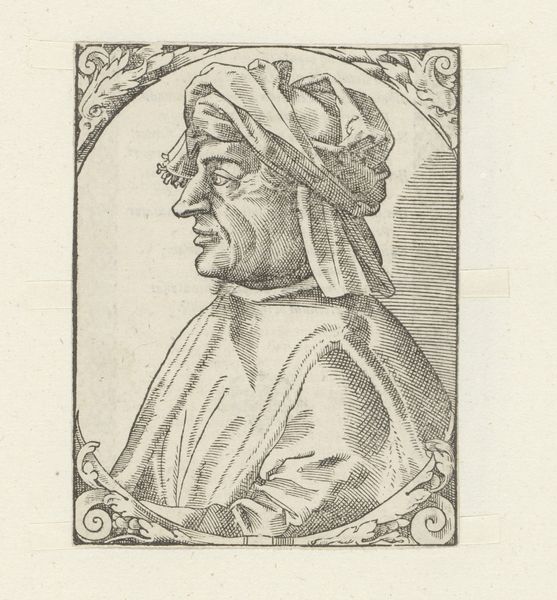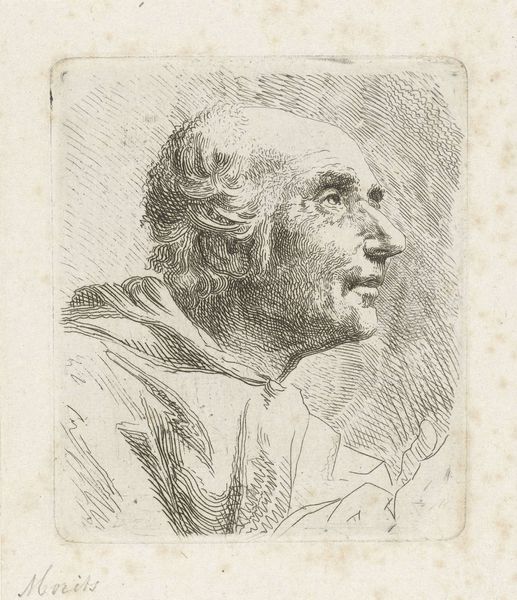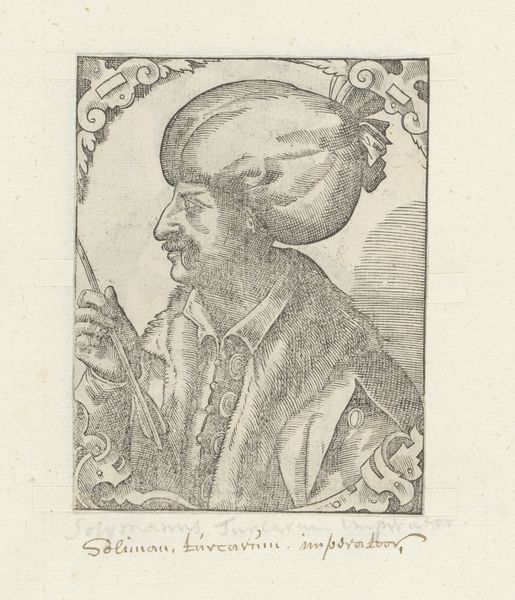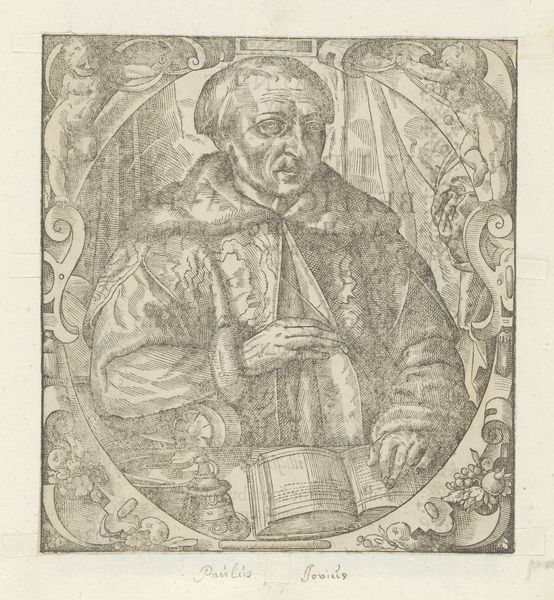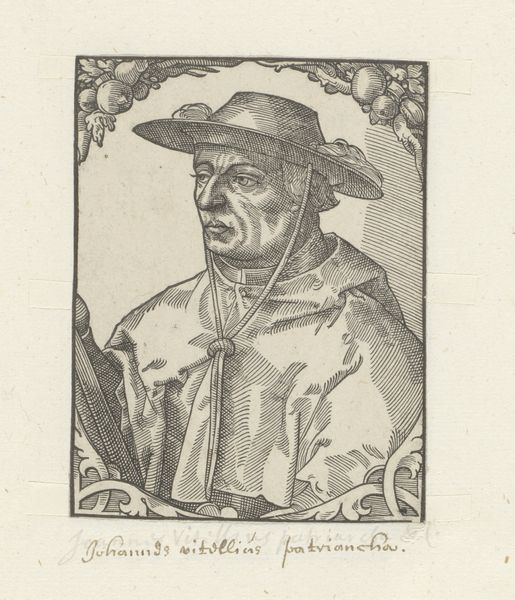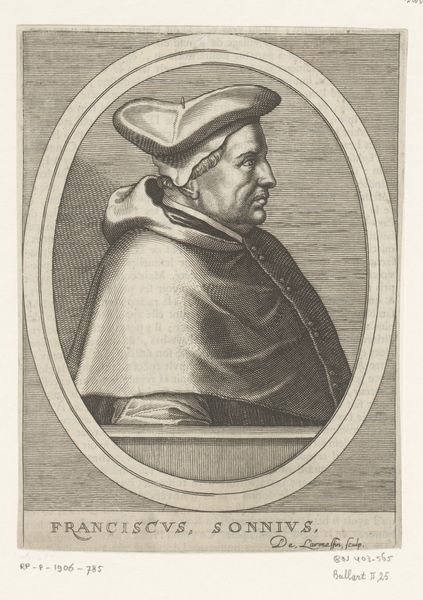
drawing, graphite, engraving
#
portrait
#
pencil drawn
#
drawing
#
toned paper
#
facial expression drawing
#
light pencil work
#
pencil sketch
#
11_renaissance
#
personal sketchbook
#
pencil drawing
#
pen-ink sketch
#
graphite
#
portrait drawing
#
pencil work
#
italian-renaissance
#
engraving
Dimensions: height 218 mm, width 160 mm
Copyright: Rijks Museum: Open Domain
This is Fabio Licinio's portrait of Agnolo Poliziano, made with etching techniques sometime in the 16th century. Etching involves coating a metal plate with a waxy ground, then scratching into that surface with a needle to expose the metal. The plate is then immersed in acid, which bites into the exposed lines. The longer the plate stays in the acid, the deeper the lines become, allowing for tonal variation when the plate is inked and printed. Look closely and you can see the fine, precise lines created by this process, giving the portrait its delicate quality. The technique allowed Licinio to achieve a high level of detail, capturing the nuances of Poliziano’s features and clothing. Etching was relatively new in the 1500s, and offered artists a more direct and expressive method of printmaking, compared to engraving which required greater physical force to cut the lines into the metal. Etching democratized printmaking and provided new opportunities for artistic expression, challenging established hierarchies in the art world.
Comments
No comments
Be the first to comment and join the conversation on the ultimate creative platform.
